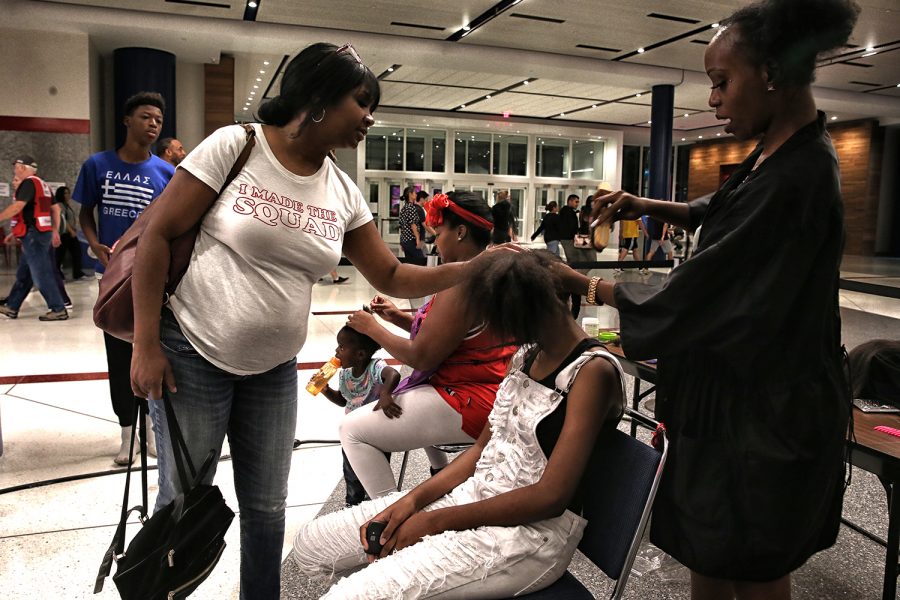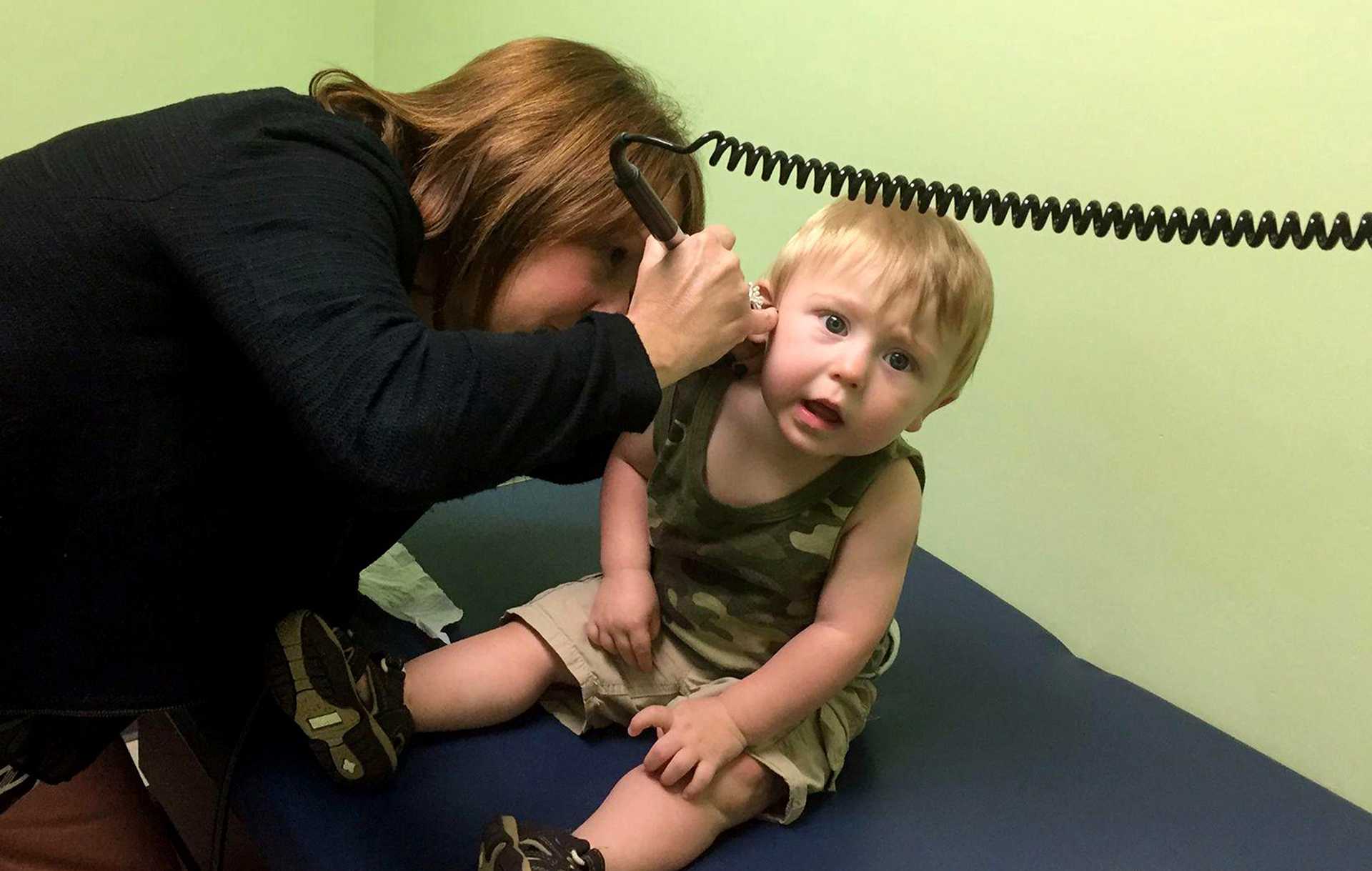Shaw: Black girls and their hair are marginalized in the Iowa City area
Resources for black women to get their hair done in Iowa City are astounding in their limitations. Most women are forced to make hour-long trips just to get their hair done because of immense marginalization in a predominantly white region.
Yvonne Ferguson-Smith helps with her daughter Yasmin’s haircut inside the George R. Brown Convention Center on Aug. 31, 2017. Meka Fisher, of Laced Up By Meka hair salon, volunteered with nearly a dozen other barbers and hairdressers to at the main Hurricane Harvey evacuation center. (Robert Gauthier/Los Angeles Times/TNS)
September 17, 2018
How often do most people plan a trip to a different city or state just to get their hair done? Never. How often do African-American women at the University of Iowa do this? More times than they should.
There is a huge lack of cultural necessities for minority students on campus in relation to privileges other students have. One of these is the lack of hair salons for female black students. In Iowa City, there is only one hair salon, Grace African Hair Braiding. It offers somewhat broad services for African-American women, including hair braiding, weaving, and barbering.
UI senior Heather Campbell said, “The lack of diversity in resources [for black women and their hair] makes me feel like I’m not important.”
Her testament showcases the blatant marginalization UI black women undergo for the simplest of things, such as being able to get their hair done. Campbell makes a three-and-a-half-hour trip back to Chicago, where she then spends around $160 to get her hair done. She says she makes that trip because the salons in Iowa City are overpriced or don’t offer the services she needs.
RELATED: Shaw: Racial microaggressions are still apparent, discrimination persists in the classroom
This is just another example of the adjustments black students have to make when they come to a predominantly white school that white students don’t have to think about.
Campbell is not alone in her struggles. UI senior Bailey Ploessl experiences the same marginalization as a mixed student. After four years, she still hasn’t found a place to get her hair done in the Iowa City area. This has led to immense frustration, Ploessl said. Whenever she wants to get her hair done, she makes a two-hour trip to Des Moines.
“All the traveling really frustrates me and adds stress, because I have to make time to clear my schedule to travel back home for a day just to get my hair done,” she said.
The process of getting your hair done if you’re a black woman is not only taxing emotionally but financially. Ploessl pays roughly $50 in gas and more than $200 for the hair styling. On a college-student budget, the obstacles are debilitating to emotional and financial security.
RELATED: Reed: Individuality and counterculture
Now why go through all this trouble just to get your hair done? Some people believe going to the salon is a luxury, not a necessity. To that, I say bull.
“My hair is something that is very important to me, because it sets me apart from many other cultures and helps me make my own mark in my culture,” Ploessl said.
Hair in black culture is a part of the African-American identity. It shapes how not only you see yourself but also how others do. It ties you to your heritage. As a racially mixed woman myself, I can attest to this argument. The way black women choose to wear their hair is a conscious process in which they reflect on how the decisions to present themselves demonstrates a culture whose hair has been historically oppressed socially and discriminated against.
The lack of salons aren’t the only issue black women face in Iowa. Living in the Iowa City area, black women’s needs aren’t met in the products offered by mainstream stores, forcing them to order online and wait longer for the products to arrive while paying additional for shipping and handling. In Iowa, there are maybe a couple of shelves; in Chicago, there are aisles of black hair products, Campbell said.
Black women are part of a culture that needs unique products to service their singularity on a daily basis, just like other cultural groups. To deny us that is to deny us the ability to fully embrace our culture and feel confident in our own skin.





